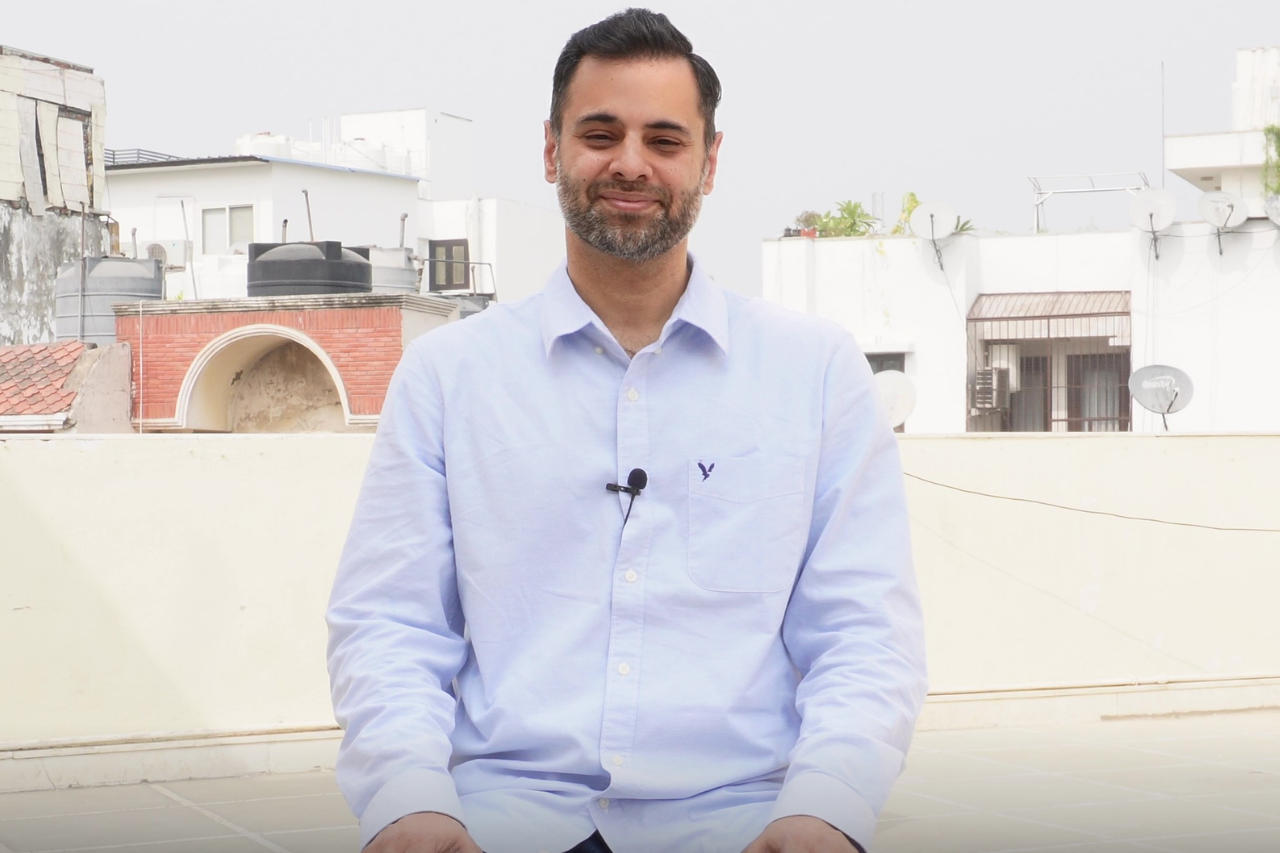Last year, while I was attending a spiritual retreat of a well-known Advaita master, I saw something happening that was contrary to the very idea that is taught in such retreats. The master or guru while giving the talk sat on a comfortable chair while the attendees, some of them were foreigners from Western countries, were made to sit on the ground in a cross-legged posture.
The argument is that the “teaching” commands the highest respect, and therefore, the teacher has to be seated above the rest. I don’t know what that really means, but since I was there I complied. It was infuriatingly painful to sit on the carpeted ground without back support. There were a few chairs available, but you see, some of the so-called disciples were quick to grab them for they know the pain of sitting on the ground for one and half hours.
It was difficult to concentrate on what the guru was saying because my hips were burning with pain. I have had this condition since birth. I cannot sit in a cross-legged posture for more than twenty minutes. I have tried years of Yoga and stretching, which helped to some extent, but my lower body just does not have that level of flexibility. I was fidgeting the entire time. I had to change my posture in-between and the only thought in my mind was, “When the hell will this finish.”
But it was not just me. I could see others struggling after about an hour, however, no one complained. Mainly because we are taught to endure pain from the beginning. We are taught that to get something worthwhile we have to struggle and make an effort. I remember my short stint with Vipasanna, where I was told to endure pain to attain the peace of nirvana. Instead, I attained painful knees and lower back injury. You see, all of this attaining and getting something business is what the mind wants. It’s just like any other material pursuit.
Traditionally, in India, it is common to have this kind of arrangement where the guru is seated higher than the disciples. I don’t have any complaints about it but that arrangement is not my cup of tea. If I am seated on a chair at the same level as the guru that does not mean less devotion or lack of respect from my end. I’m just making myself comfortable so that I can absorb what the teacher is saying without worrying about discomfort.
What did the teacher say? He said, “All are One. Oneness is your true nature.” I wonder then why this split of guru and disciple. Where is the guru separate from the disciple? And most importantly, what is the disciple trying to seek and attain through this relationship? Isn’t it more or less the same as what we get in other relationships?
The guru-disciple split keeps the separation alive. The disciple seeks comfort in remaining the same, and sometimes, there is a trauma bond, which leads to continuous abuse. This is something less spoken about in spiritual circles. Jiddu Krishnamurti said it succinctly that the guru sustains the disciples and the disciples build the guru. Both are images.
When the talk ended, an elderly lady brought garlands for the guru, washed his feet in a bowl of water, and cried relentlessly hugging him. The guru replied that all the garland and foot-washing was not necessary. He seemed to be a bit embarrassed by what was happening. Following that, others started doing the same. There were tears and the whole atmosphere was emotional. When one of the disciples got up, I immediately grabbed his chair to relieve my hips.
During that entire event, I did not reveal to anyone about myself as a writer and speaker. I told them that I write about life and philosophy. I had gone to that retreat only to spend time in nature, and while the guru was there, I thought, why not see what the paraphernalia was all about. The identification of being a disciple itself can be a trap. Because then, there comes a competition of being an advanced disciple.
One such advanced disciple was put in charge of coordinating the whole event. Let’s call her Lily. Lily was lecturing everyone on how we are to behave in front of the guru. She was stressed out making arrangements for the guru, talks, and travel, which was evident from the fact that she had fainted on the last day of the talks. Yet, she was determined to serve the guru. She has been with him for many years now. I’m not questioning her devotion, perhaps, that’s her path, but I do wonder as to what is it that she’s trying to accomplish.
In my understanding, the devotion to form has to end for the true “attainment” of infinity. Especially, Indians have for generations been brainwashed to be guru-worshippers and I have seen people do the most ridiculous things in the name of spirituality. The word guru originally meant “weight.” Another meaning is one who dispels darkness. The problem is that to experience light one has to embrace their darkness first. One has to confront what is going on within.
The disciple whose mind is extroverted and involved and engaged in forms and events remains trapped in the spaghetti of thoughts. It is a cunning ploy by the mind to escape What-Is. We fear ourselves. We don’t want to face the inner monster. And without that, going beyond is impossible, for the monster is the gatekeeper.
We say that we want happiness and peace of liberation but we act precisely the opposite. This hypocrisy is also a part of human conditioning. We idealize gurus in form. We project on them. We burden them with personal ideas and expectations about liberation. And when they fail to convince us, we are quick to throw them down from the pedestal. Isn’t that the game we love to play? Isn’t that why we hop from one guru to another?
I have known Lily for some time now. She has a good heart. She is compassionate. She has gone through a rough ordeal in her personal life. She has not spoken to her parents for many years. I feel that somewhere inside she has the yearning to be loved and validated by her parents. It is a natural calling, we all have that, no matter how the parents are.
She seeks this validation from the guru who acts like a father figure. But it stresses her out for she manages everything for the guru from online events and travels to handling his social media accounts (which can be mentally draining). The attitude of service out of respect for another human being is one thing, but we cannot live for another human being no matter what the relationship is.
The relationship with a guru does not necessarily have to be that close for the spiritual understanding to happen. I’m not hinting a foul play at the guru’s end. I’m not saying he has malicious intentions with her. But I do see that what Lily has with her guru is not healthy for her.
For the past two years, she’s been experiencing recurring anxiety attacks. One time, half of her body was paralyzed. She found some relief with the treatment of a psychotherapist but it was temporary. Of course, as a friend, I have been comforting her all through and telling her to go easy about things. Rather than focusing on her life (which is her birthright), she has attached her identity to that of her guru and she cannot see how this is playing out on her.
I can serve another person unconditionally out of love and compassion but not authority. This mind-body organism is designed to detest authority from the very beginning. I don’t need to put labels either on myself or the other person. I don’t put people on a pedestal and I don’t like to be put on one. I’m not a guru, sage, teacher, healer, or a messenger, and nor am I enlightened.
I revere masters who have passed on their great wisdom. I have an enormous respect for them. But I’m not a blind follower of any guru. I have questioned every teacher, including the Buddha and the Shankaracharya, and accepted only those things that resonated with my personal experience. I have embraced my human imperfections knowing that they are not my creation but given to me by the Source.
Human conditioning does not allow us to be perfect; therefore, there is no judgment towards the guru or his disciples. Every one of us has our own paths while the destination is the same. Maybe I am wrong about all of this. Who knows!
I do not see myself as an authority and I do not consider anyone as my follower or disciple. I do not have the power to liberate you. I can only give pointers and share my personal insights. And that is precisely what I do. I do not teach. I do not claim that Advaita teaching is the only path to “your” liberation.
You can have a beautiful relationship with me without labeling it. You are me. And I am you. There is no difference. The image of me is a figment appearing in your waking dream. I’m here to comfort you in every way possible. For that, you do not have to be my “follower.” Rather, do me a favor, and be my friend. What can be more beautiful than friendship?
You do not need my validation or of anyone else for that matter. You are self-sufficient. That is how the creator designed you. The divinity has given you the greatest tool that can help you peacefully navigate life – It is your own mind. It is your key to true liberation.
Recognize this divinity within yourself and live your life to the fullest. What is acceptable to you should come from within you. You do not need any guru because the real guru is within you. Nothing ever comes close to that love which is your true nature.

